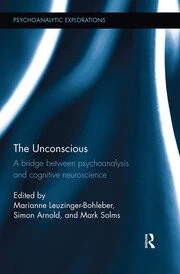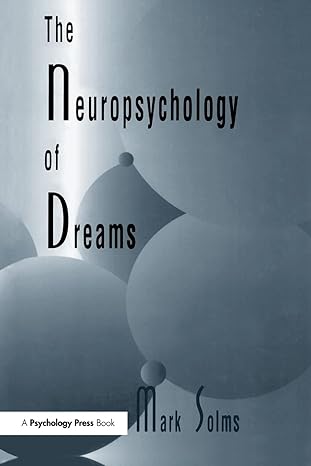Neuroscience Books
Social: Why Our Brains are Wired to Connect
Why are we influenced by the behaviour of complete strangers? Why does the brain register similar pleasure when I perceive something as 'fair' or when I eat chocolate? Why can we be so profoundly... (more)
The Brain Health Book: Using the Power of Neuroscience to Improve Your Life
Concerns about memory and other thinking skills are common, particularly in middle age and beyond. Due to worries about declining brain health, some seek out dubious products or supplements... (more)
The Pocket Guide to Neuroscience for Clinicians
Louis Cozolino helps clinicians to broaden their thinking and deepen their clinical toolbox through an understanding of neuroscience, brain development, epigenetics and the role of attachment in... (more)
Mind, Consciousness, and Well-Being
Here, Daniel J. Siegel and Marion F. Solomon have gathered leading writers to discuss such topics as: attention, resilience, and mindfulness; neuroplasticity-how the brain changes its function and... (more)
Mind to Matter: The Astonishing Science of How Your Brain Creates Material Reality
AS WE TAKE CHARGE OF OUR INDIVIDUAL POWER TO CREATE, WE HAVE THE POTENTIAL, AS A SPECIES, TO CHANGE OUR WORLD. Every creation begins as a thought. Our thoughts travel as electrical impulses along... (more)
Family Experience of Brain Injury: Surviving, Coping, Adjusting
Brain Injury not only affects its victim, but those around them. In many cases, relatives are often overlooked despite facing many obstacles accepting and adjusting to a new way of life. Family... (more)
Life and Suicide Following Brain Injury: A Personal and Professional Account
Life and Suicide Following Brain Injury tells the story of Tom, a 43 year-old man who acquired a brain injury from a road traffic accident at the age of 22. Tom survived but went on to take his own... (more)
Surviving Clinical Psychology
This vital new book navigates the personal, professional and political selves on the journey to training in clinical psychology. Readers will be able to explore a range of ways to enrich their... (more)
Psychotherapy and Aphasia: Interventions for Emotional Wellbeing and Relationships
Psychotherapy and Aphasia: Interventions for Emotional Wellbeing and Relationships is an exciting international collaboration among clinical neuropsychologists, speech and language therapists and... (more)
Life After a Rare Brain Tumour and Supplementary Motor Area Syndrome: Awake Behind Closed Eyes
This book offers a personal insight into the experience of Alex Jelly, a professional fundraiser who developed a rare brain tumour, a papillary meningioma, which was successfully removed. She was... (more)
The Perception of Time: Your Questions Answered
Using a concise question and answer format, The Perception of Time: Your Questions Answered examines basic temporal processes and the ways in which our perception of time can be altered. Divided into... (more)
The Story of a Clinical Neuropsychologist
From a disadvantaged childhood to becoming one of our best-loved clinical neuropsychologists, this exceptional book tells the life story of Barbara A. Wilson, who has changed the way we think about... (more)
Psychological Therapies in Acquired Brain Injury
The psychological impact of an acquired brain injury (ABI) can be devastating for both the person involved and their family. This book describes the different types of psychological therapies used to... (more)
The Unconscious: A Bridge Between Psychoanalysis and Cognitive Neuroscience
The Unconscious explores the critical interdisciplinary dialogue between psychoanalysis and contemporary cognitive neuroscience. Characterised by Freud as `the science of the unconscious mind',... (more)
The Neuropsychology of Dreams: A Clinico-anatomical Study
In this book, Mark Solms chronicles a fascinating effort to systematically apply the clinico-anatomical method to the study of dreams. The purpose of the effort was to place disorders of dreaming on... (more)
Neuroscience, Psychotherapy and Clinical Pragmatism
This volume explores how conceptions of pragmatism set forth in American philosophy serve as orienting perspectives in psychotherapy. Drawing on the influential contributions of William James and... (more)
Brain Imaging: What it Can (and Cannot) Tell Us About Consciousness
Magnetic resonance imaging methods have taken a commanding position in brain studies because they allow scientists to follow brain activities in the living human. The ability to measure cerebral... (more)
The Age of Insight: The Quest to Understand the Unconscious in Art Mind and Brain from Vienna 1900 to the Present
A Nobel Prize-winning neuroscientist and author of In Search of Memory documents the work of five leading minds including Sigmund Freud and Gustave Klimt in 1900 Vienna, revealing how their critical... (more)
Headaches and Brain Injury from a Biopsychosocial Perspective: A Practical Psychotherapy Guide
Post-traumatic headache is the most common symptom after mild/moderate brain injury. Similar to the characteristics of naturally occurring headaches, it is multi-faceted in nature and includes... (more)
Memoirs of an Addicted Brain: A Neuroscientist Examines his Former Life on Drugs
A Why are we desperate for what we don't have, or can't have, often at great cost to what we do have? Why do we risk our peace and contentment, even our lives? Why are we so moved by our addictions,... (more)
Mild Traumatic Brain Injury and Postconcussion Syndrome: The New Evidence Base for Diagnosis and Treatment
This is the first neuropsychology book to translate exciting findings from the recent explosion of research on sport-related concussion to the broader context of mild traumatic brain injury (MTBI)... (more)
The Design and Analysis of Experiments in Neuroscience
Intended to meet the needs of a student who wishes to begin research in the field of neuroscience or biological psychology, this book provides background to the scientific method, and the use of both... (more)
Discoveries in the Human Brain: Neuroscience Prehistory, Brain Structure and Function
This illustrated chronicle of discoveries about the brain aims to cover the historical sweep of neuroscience from the second millennium BC to the late 20th century. This engaging and engrossing... (more)
How to Solve the Mind-body Problem
The mind is the brain. Each mental state - hope, fear and thought - can be identified with a particular physical state of the brain. Or so argues Nicholas Humphrey. In this book he offers support for... (more)
Brain Circuits and Functions of the Mind - Essays in Honor of Roger Wolcott Sperry
In the history of American neuroscience, Roger Sperry and his contribution are outstanding. In this book, over twenty of his students, research colleagues and scientific friends, themselves all... (more)


















